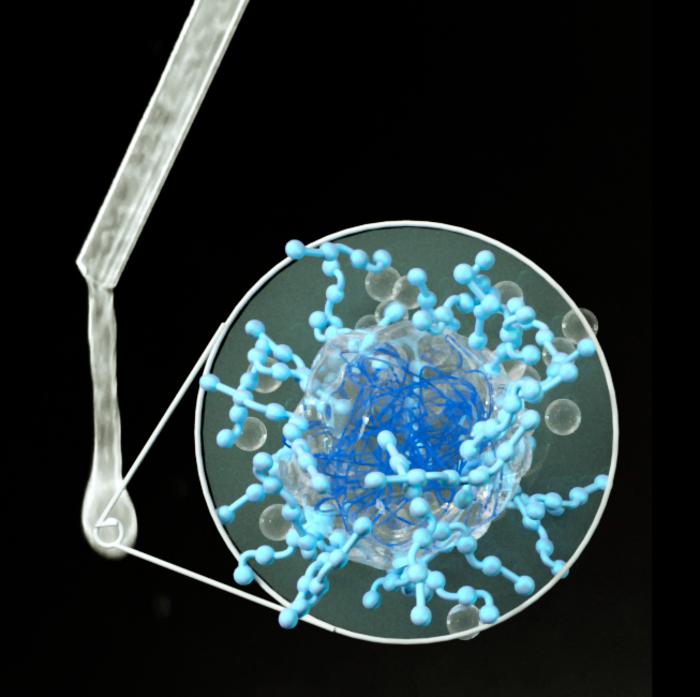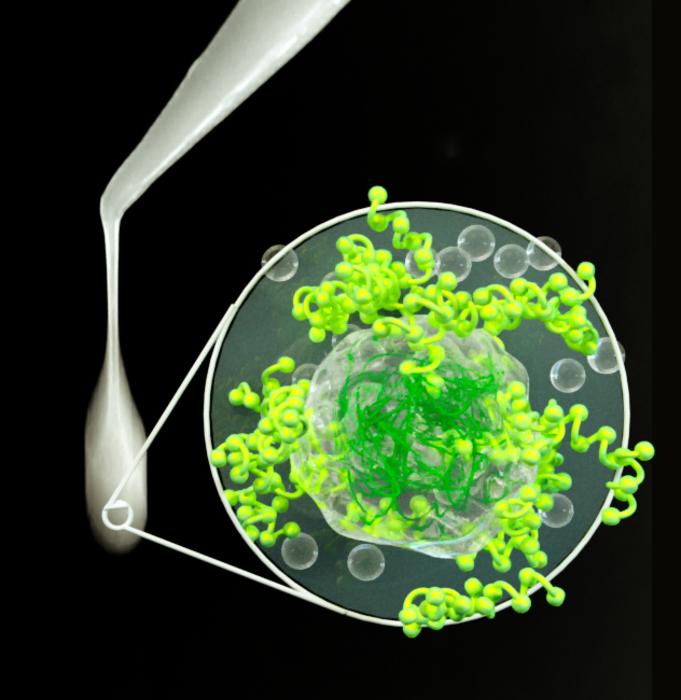Saliva Substitute Offers Extended Dry Mouth Relief
University of Leeds scientists develop a novel saliva substitute, outperforming commercial products by providing longer-lasting relief for dry mouth conditions
Nov 20, 2023
AI Image Created Using DALL-E
At the University of Leeds, a vanguard of scientists has engineered an aqueous lubricant, a potential panacea for those afflicted with xerostomia, or dry mouth, a condition impacting roughly one in ten individuals, particularly prevalent among the aged and those undergoing cancer treatment or on multiple medications. This innovative saliva substitute mirrors natural saliva in hydrating the oral cavity and facilitating mastication.

Peering through the lens of a powerful microscope, one observes the microgel at the heart of this invention. It presents as a lattice-like network, reminiscent of a sponge, adhering to the mouth's surface. Encasing this microgel is a polysaccharide-based hydrogel, adept at trapping water, thereby extending the sensation of a moisturized mouth.
Professor Anwesha Sarkar, who spearheaded this development, remarks, “Our laboratory benchmarking reveals that this substance will have a longer-lasting effect." She highlights a key limitation of current commercial offerings—their transient effectiveness, necessitating frequent reapplications, a disruption to everyday activities like talking or eating, and a detriment to quality of life.

This advancement is detailed in Scientific Reports through a study entitled “Benchmarking of a microgel-reinforced hydrogel-based aqueous lubricant against commercial saliva substitutes.” The distinction of the Leeds invention lies in adsorption, a process allowing the microgel to bond with the mouth's inner lining, a feature lacking in its predecessors.
In laboratory tests, the Leeds product was compared with eight commercially available saliva substitutes, including brands like Biotene and Oralieve. These tests were conducted on an artificial tongue-like surface and revealed a significant difference in desorption levels—the commercial products lost between 23% to 58% of their lubrication, while the Leeds substitute shed just 7%, with the dairy-based variant marginally outperforming the vegan version made from potato protein.
Dr. Olivia Pabois, a Research Fellow at Leeds and the paper's first author, states, “The test results provide a robust proof of concept that our material is likely to be more effective under real-world conditions and could offer relief up to five times longer than the existing products."
The components of this saliva substitute—dairy and plant proteins and carbohydrates—are non-toxic and non-caloric, adding to its appeal. Though testing has so far been limited to laboratory analysis, the team is hopeful about the results being replicated in human trials.
The authors of the study aim to commercialize this lubricant technology with the goal of improving the quality of life for those suffering from debilitating dry mouth conditions. In cases of severe xerostomia, individuals can experience difficulty swallowing, leading to malnutrition and dental issues, thereby increasing the burden on healthcare systems. This scientific breakthrough represents a beacon of hope, potentially easing the plight of many who endure this condition.


















